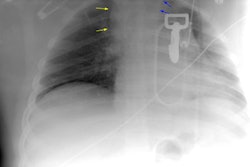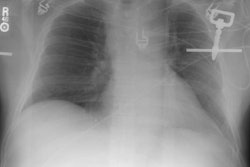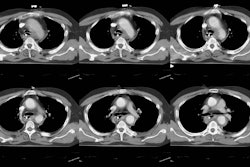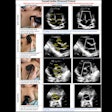In a move that could worsen the shortage of radiologic technologists, program directors at radiography training sites may have to spend time and money obtaining master's degrees in order to keep their jobs and maintain accreditation.
In July the Joint Review Committee on Education in Radiologic Technology (JRCERT) announced an update to its "Standards for an Accredited Educational Program in Radiologic Sciences." Beginning January 1, 2002, all directors of RT training institutions will be required to have an advanced degree if they want to be accredited. Standard 6 in the human resources section states that a full-time program director must hold a master’s degree, while a full-time clinical coordinator must have a bachelor’s degree in order for the program to receive JRCERT accreditation.
The impending change has stirred heated debate among RT program directors. Some are backing a Save Our Job campaign to modify the requirement before it takes effect. A number of messages posted to the popular e-mail group Radsci Listserve, hosted by Western Wisconsin Technical College, endorse a higher educational standard for future program directors. But some contributors argue that current program directors should be exempt, or "grandfathered in," with their current education.
Both sides have until October 14 to convey their views to JRCERT board members, who are scheduled to review implementation of the policy at an October 18 meeting in Chicago.
"If we don't have to hurt our fellow educators to achieve the global objective, then let's not," said Richard Bower, the radiography program director at Hendrick Medical Center in Abilene, TX. "Those individuals who may have years of dedication to the profession, and have improved themselves educationally by completing a degree, should not be told they are too ill-prepared to continue in a job in which they have proven they have the ability to perform."
Although Bower already has his master’s degree in education, he initiated the Save Our Job campaign after hearing from others who would be affected. "By not grandfathering in these professionals, we are in effect saying that a new graduate with a master’s degree is better qualified to direct a program than someone with a bachelor’s degree and 10 years experience."
But other program directors note that master’s degrees have been preferred under JRCERT standards for a number of years. They argue that exempting current program directors from the new requirement simply rewards people who haven’t obtained credentials they should already have, or that they should be able to get by the 2007 deadline.
"We’ve received two or three dozen comments on this issue," said Joanne Greathouse, JRCERT’s chief executive officer. "To get more than two or three comments total is unusual."
The comments received by JRCERT are "mixed," Greathouse said. The largest proportion, she said, were "requests from program directors who believe they should be exempted from the requirement."
Another pending accreditation change, which will require the clinical coordinators at RT training programs to have a baccalaureate degree, has generated little controversy, Greathouse said.
According to JRCERT’s 2000 annual report, more than half of the directors at the nation’s 582 accredited RT programs have a bachelor’s degree or less. Similar numbers characterize the 71 accredited programs in radiation therapy.
JRCERT’s 2000 annual report also shows a steady decline in the number of accredited RT and therapy programs over the last five years. The number of accredited RT programs is down from 651 in 1996; the number of accredited programs in radiation therapy is down from 107 in 1996.
The master’s requirement will presumably have a greater impact on RT programs that are outside of academic institutions, Bower said.
"It’s going to have the greatest economic effect on the hospital programs, which are the lowest-cost providers of RT training. If they allow grandfathering it wouldn’t have the economic impact that it may have," Bower said, noting that increased costs will also be passed on to patients.
JRCERT’s board of directors weighed the possibility that the new requirement might cause more programs to close and cause further shortages of radiologic technologists, Greathouse said.
However, "The ultimate decision of the board was that the education requirement was justified," Greathouse said. "Program directors need to have the level of experience and education that is afforded by a master’s degree."
The JRCERT policy doesn’t specify a particular discipline for the required master’s degree. Greathouse noted that any number of education, administration, or science degrees could be very useful to RT program directors.
By Tracie L. ThompsonAuntMinnie.com contributing writer
October 8, 2001
Comments may be sent to JRCERT, 20 N. Wacker Drive, Suite 900, Chicago, IL 60606-2901 or [email protected]
Related Reading
JRCERT to require advanced degrees for RT academic directors, July 30, 2001
Radiologic technologists still search for respect in tight job market, November 6, 2000
Copyright © 2001 AuntMinnie.com



















